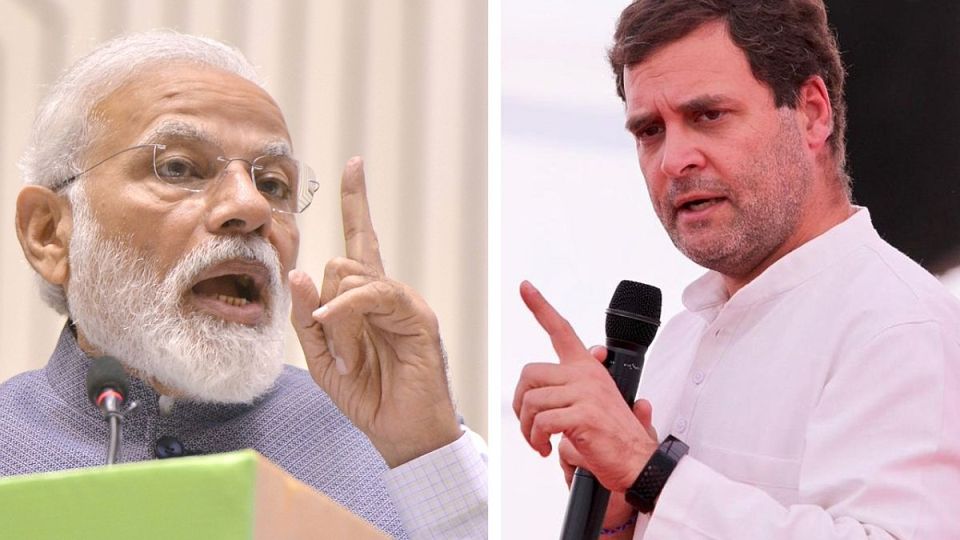June 5, 2024
NEW DELHI – Nobody ever thought the race in the Lok Sabha elections would be as tight as it turned out to be. The electorate’s message to the BJP is loud and clear: a strong Opposition is essential for the functioning of a vibrant and accountable democracy.
Prime Minister Narendra Modi may have won a third term for the BJP and its NDA allies but the revival of the Congress-led Opposition is the biggest take away from the election. It is indeed a healthy sign for the country and its democratic institutions.
The election outcome clearly shows that while Modi is still the biggest political figure in the country, the Opposition has successfully made big holes in the BJP’s vote bank in key states like Uttar Pradesh, Maharashtra and West Bengal.
The results also reflect that Congress leader Rahul Gandhi has come into his own after years of hard labour and the BJP’s relentless campaign against him. A much improved performance by Congress has finally given him legitimacy and put a seal of approval on his leadership of the grand old party.
The Congress will also now get the main Opposition status in the House, a privilege the party did not enjoy during the past decade.
Another big winner of the elections is Samajwadi Party supremo Akhilesh Yadav whose party proved all political pundits wrong to bag a substantial number of seats in Uttar Pradesh, electorally the most important state in the country.
Construction of the Ram Temple in Ayodhya, which was projected by the BJP government as one of its main achievements, does not seem to have electorally benefited the saffron outfit. It is now anybody’s guess whether UP Chief Minister Yogi Adityanath will continue to enjoy the party leadership’s confidence for long.
The BJP will now have to carry its NDA allies along in the day-to-day running of administration since it has not been able to cross the magical mark of 272 on its own, unlike the 2019 elections when it had won 303 seats. TDP chief N Chandrababu Naidu and Bihar Chief Minister Nitish Kumar are well-known for their mercurial behaviour in politics.
The Opposition succeeded in building a narrative that the BJP will amend the Constitution if it attains a two-thirds majority in the House. The BJP’s failure to realise its dream of ”Abki Baar, 400 Paar” also means it will have to bury its ”One Nation, One Election” plan and many other dream projects.
Contrary to exit polls which gave an edge to the BJP in West Bengal, the Trinamul Congress of Mamata Banerjee has done exceedingly well, defying anti-incumbency. Prime Minister Modi’s intensive campaign and large crowds witnessed at his rallies in the state have not paid rich dividends to his party.
The BJP, which was quite confident of doing well in Tamil Nadu and Kerala, has barely managed to open its account only in Kerala. Odisha of course is a big gain for the BJP as it wrested power from Naveen Patnaik’s BJD and also bagged a good number of Lok Sabha seats in the state. Naveen Babu’s failing health and the perception that his close aide V K Pandian virtually runs the government are the key factors for the BJD’s defeat.
The INDIA bloc fought the elections well and its performance could have been much better if its constituents had also reached seat-sharing arrangements in states like West Bengal, Kerala and Punjab where they fought against each other.
The new government has its task cut out. Unemployment and runaway inflation are the two biggest challenges for it. Even during the election campaign, the BJP could not counter the Opposition’s narrative on these two issues.
India will become the third-largest economy sooner rather than later but every Indian now dreams of a ‘Viksit Bharat’ by 2047 and Modi has pledged to make it a reality.
Read More:
PM Modi’s BJP on track for historic third term, but loses decade-old parliamentary majority
India election: Modi’s BJP in tight race against opposition alliance in multiple constituencies
People have placed their faith in NDA: PM Modi
Ridiculed for a decade, India’s Rahul Gandhi slows Modi juggernaut


